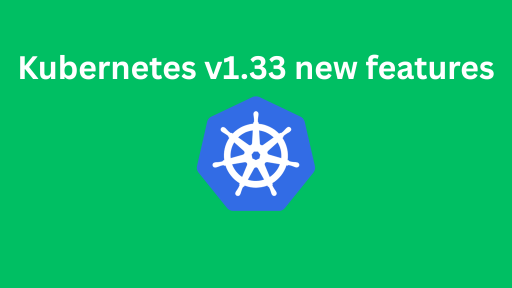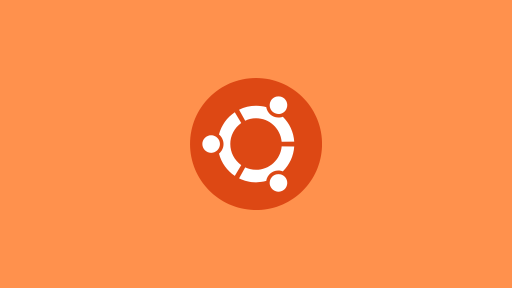Introduction to cloud platforms and DevOps
In the ever-evolving landscape of software development and IT operations, the fusion of cloud platforms and DevOps practices has emerged as a potent catalyst for innovation and efficiency. As organizations strive to deliver high-quality applications and services at an unprecedented pace, embracing cloud platforms in conjunction with DevOps methodologies has become a strategic imperative.

DevOps, a portmanteau of “Development” and “Operations,” is a cultural shift that fosters collaboration, automation, and continuous improvement across the software delivery lifecycle. By breaking down traditional silos and fostering a shared sense of ownership, DevOps empowers teams to streamline processes, accelerate release cycles, and enhance overall operational excellence.
The concept of cloud computing in DevOps
Cloud computing has revolutionized the way organizations provision, manage, and scale their IT infrastructure. By leveraging the power of virtualization and on-demand resource allocation, cloud platforms offer unparalleled flexibility, scalability, and cost-effectiveness. In the context of DevOps, cloud platforms serve as the foundation upon which agile methodologies, continuous integration, and continuous delivery (CI/CD) practices thrive.
The marriage of cloud platforms and DevOps principles enables organizations to rapidly provision and deprovision computing resources, automate deployment pipelines, and seamlessly integrate various tools and services. This synergy facilitates faster time-to-market, enhanced reliability, and improved operational efficiency, ultimately driving business agility and competitiveness.
Benefits of using cloud platforms for DevOps
Adopting cloud platforms for DevOps unlocks a myriad of benefits that empower organizations to achieve their digital transformation goals. Let’s explore the key advantages of this powerful combination:
Improved scalability and flexibility
One of the most significant benefits of cloud platforms is their inherent scalability and flexibility. DevOps teams can dynamically provision and scale resources on-demand, ensuring that applications and services can seamlessly handle fluctuating workloads and traffic spikes. This agility enables organizations to respond swiftly to changing market demands, accommodate growth, and optimize resource utilization.
Moreover, cloud platforms offer a wide range of services and tools that can be easily integrated into DevOps workflows. From containerization and serverless computing to managed databases and analytics services, the cloud ecosystem provides a rich tapestry of options to streamline development, testing, and deployment processes.
Cost-efficiency and reduced infrastructure management
Embracing cloud platforms in DevOps environments can significantly reduce operational costs and minimize the burden of infrastructure management. By leveraging the pay-as-you-go pricing model and auto-scaling capabilities of cloud providers, organizations can optimize resource allocation and avoid over-provisioning or under-utilization of resources.
Furthermore, cloud providers handle the underlying infrastructure maintenance, security patching, and software updates, allowing DevOps teams to focus on delivering value rather than grappling with mundane infrastructure tasks. This shift in responsibility enables organizations to reallocate resources more effectively, fostering innovation and accelerating time-to-market.
Enhanced collaboration and streamlined workflows
DevOps emphasizes cross-functional collaboration and seamless communication among development, operations, and other stakeholders. Cloud platforms facilitate this collaboration by providing centralized repositories, version control systems, and collaboration tools that enable teams to work in sync, regardless of their physical location.
Additionally, cloud-based CI/CD pipelines streamline the software delivery process, automating build, test, and deployment stages. This automation reduces manual effort, minimizes human errors, and ensures consistent and reliable deployments, ultimately leading to faster release cycles and improved quality assurance.
Increased reliability and availability
Cloud platforms offer robust infrastructure and services designed for high availability and fault tolerance. By leveraging distributed architectures, load balancing, and automatic failover mechanisms, DevOps teams can ensure that applications and services remain resilient and accessible, even in the face of unexpected failures or spikes in demand.
Moreover, cloud providers typically offer robust backup and disaster recovery solutions, enabling organizations to safeguard their data and applications against potential data loss or system outages. This increased reliability and availability translate into improved user experiences and enhanced customer satisfaction.
Security and compliance considerations
While cloud platforms present numerous benefits, organizations must carefully consider security and compliance implications. Cloud providers invest heavily in robust security measures, including advanced encryption, access controls, and continuous monitoring. However, it is crucial for DevOps teams to understand shared responsibility models and implement best practices for secure configuration, data protection, and access management.
Compliance with industry regulations and standards, such as GDPR, HIPAA, and PCI-DSS, is also a critical consideration when adopting cloud platforms. DevOps teams must work closely with cloud providers and leverage their compliance offerings to ensure adherence to regulatory requirements and maintain data privacy and integrity.
Best practices for implementing cloud platforms in DevOps
To maximize the benefits of cloud platforms in DevOps environments, it is essential to follow best practices and adopt a structured approach. Here are some key considerations:
- Embrace Infrastructure as Code (IaC): Leverage IaC tools like Terraform, CloudFormation, or Ansible to define and manage your cloud infrastructure programmatically. This approach ensures consistency, reproducibility, and version control for your infrastructure configurations.
- Implement Continuous Integration and Continuous Delivery (CI/CD): Establish robust CI/CD pipelines that automate the build, test, and deployment processes. Leverage cloud-native services like AWS CodePipeline, Azure DevOps, or Google Cloud Build to streamline your software delivery lifecycle.
- Adopt Containerization and Microservices: Containerize your applications using technologies like Docker and Kubernetes, and embrace a microservices architecture. This approach promotes modular development, scalability, and portability across different cloud environments.
- Leverage Managed Services: Take advantage of managed services offered by cloud providers, such as databases, message queues, and caching services. These fully-managed offerings reduce operational overhead and allow you to focus on your core business logic.
- Implement Monitoring and Observability: Establish comprehensive monitoring and observability practices to gain insights into your applications’ performance, health, and user behavior. Leverage cloud-native monitoring tools like AWS CloudWatch, Azure Monitor, or Google Cloud Operations Suite.
- Embrace Automation and DevOps Culture: Foster a DevOps culture that embraces automation, collaboration, and continuous improvement. Encourage cross-functional teamwork, knowledge sharing, and a mindset of continuous learning and experimentation.
- Ensure Security and Compliance: Implement robust security measures, such as identity and access management, data encryption, and network security controls. Regularly review and update your security configurations to align with industry best practices and compliance requirements.
Case studies of successful cloud platform adoption in DevOps
Several organizations have successfully embraced cloud platforms in their DevOps practices, reaping substantial benefits in terms of agility, scalability, and operational efficiency. Let’s explore a few notable case studies:
- Netflix: As a pioneer in cloud computing and DevOps, Netflix migrated its entire infrastructure to the cloud, leveraging AWS services. They adopted a microservices architecture, containerization, and automated deployment pipelines, enabling them to rapidly innovate and deliver a seamless streaming experience to millions of customers worldwide.
- Spotify: Spotify’s journey to the cloud involved transitioning from a monolithic architecture to a microservices-based approach using Google Cloud Platform (GCP). They embraced containerization with Kubernetes, implemented CI/CD pipelines, and adopted a “you build it, you run it” DevOps culture, resulting in increased agility and faster time-to-market for new features.
- Airbnb: Airbnb leveraged AWS and embraced DevOps practices to scale their platform and meet the demands of their rapidly growing user base. They implemented automated deployment pipelines, containerization with Docker, and leveraged AWS services like EC2, ELB, and RDS, enabling them to deliver new features and updates quickly and reliably.
- Capital One: Capital One’s cloud journey involved migrating their legacy systems to the cloud and adopting DevOps practices. They partnered with AWS and implemented CI/CD pipelines, infrastructure as code, and automated testing, resulting in faster software delivery cycles and improved operational efficiency.
These case studies demonstrate the transformative power of cloud platforms and DevOps methodologies, showcasing how organizations across various industries have leveraged this combination to drive innovation, enhance customer experiences, and gain a competitive edge.
Conclusion: Harnessing the power of cloud platforms for DevOps success
In the era of digital disruption, the synergy between cloud platforms and DevOps practices has become an indispensable catalyst for organizational agility and innovation. By embracing cloud platforms, organizations can unlock a wealth of benefits, including improved scalability, cost-efficiency, enhanced collaboration, increased reliability, and streamlined workflows.
As we navigate the ever-evolving technological landscape, it is crucial for organizations to stay ahead of the curve and leverage the power of cloud platforms in conjunction with DevOps methodologies. By fostering a culture of continuous improvement, automation, and cross-functional collaboration, organizations can accelerate their digital transformation journeys and deliver exceptional customer experiences.Unlock the full potential of your DevOps initiatives by embracing the power of cloud platforms. Join us at [Company Name] for a personalized consultation and discover how our cloud-native solutions can propel your organization to new heights of agility, scalability, and operational excellence. Contact us today to embark on your cloud-powered DevOps journey.





